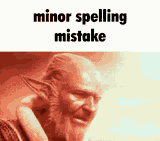>>127116408
I really don't think this applies to more than a marginal number of listeners, if that, at least when it comes to classical music. The logic seems upside down. I'm not just speaking for myself when I say that I *first* realized classical music and literature were simply better (technically, aesthetically, and on many other levels), and *then* my worldview developed from that realization. It wasn't the other way around, as in "everything used to be better, therefore old music better". That seems like a backwards and shallow understanding.
And no, you don't need to have "experienced" a past era to understand what it might have felt or looked like. Just imagine a good 100-150 years ago: classical music, with all its richness, diversity, and expressive potential, being the main form of music. You still had traditional folk music traditions everywhere, because industrialization and globalism hadn't yet steamrolled every local culture, and there was "light" and "popular" music too for entertainment. But there were no recordings (or they weren't available to anybody), so the aura of music was far stronger. You had to either learn to play it yourself or go hear it live where it could absolutely blow you away. It was a ritual, a rare social event, and had a communal aspect that's completely alien today. You had church music, public concerts, playing music together at home, and no instant and infinite music listening program.
Now music mostly serves as a constant background noise for daily life; walking around, eating, shopping, driving, working, studying. It's all just noise pollution, it's annoying, and it has no power.
To reduce this to mere "nostalgia" is missing the point. This is about something much deeper and essential.



